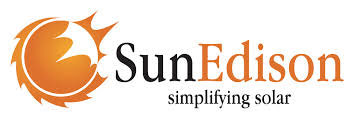Thanks to Massachusetts’ leadership on bulk purchases of solar, SunEdison is bringing clean energy to low income housing developments across the state.
16 public housing authorities have signed power purchase agreements with SunEdison (Nasdaq: SUNE) for a total of 39.5 megawatts. Under the innovative program, solar can be installed on-site or come from one of 10 projects strategically located in various parts of the state.
They have a choice – either buy the energy from their own system (owned and operated by SunEdison at no cost to them) or buy net metering credits generated from one of SunEdison’s 10 projects (extra solar generated that’s sent to the grid).
Either way, they get fixed, low cost electricity rates under 20-year contracts, saving them a combined $60 million, while preventing the carbon emissions of 200,000 cars.
SunEdison owns and operates the solar systems as part of its Yieldco, TerraForm Power (Nasdaq:TERP).

How is this happening? PowerOptions – the state’s biggest energy buying consortium (which also buys natural gas) chose SunEdison after a rigorous solicitation process. The contract they hammered out is available to all 500 members – cities, towns, hospitals, universities and nonprofit organizations – that often can’t afford solar systems.
"By ensuring access to its membership base, SunEdision has agreed to best in industry terms for the PowerOptions program. The program is structured to give nonprofit organizations benefits of tax incentives which make solar projects economically feasible but are out of reach because of their tax-exempt status. The developer will share the benefits of tax incentives with the nonprofits in the form of reduced electricity pricing," says PowerOptions.
Another bulk purchasing program is Solarize Massachusetts, which makes solar available to individuals and businesses at prices cheaper than fossil fuels.
SunEdison has been busy in New England lately. A few weeks ago, it became the world’s largest renewable energy developer after acquiring Boston-based First Wind. This year, SunEdison expects to complete over 1 gigawatt (GW) of projects, rising to 1.5 GW next year and over 2 GW in 2016.
